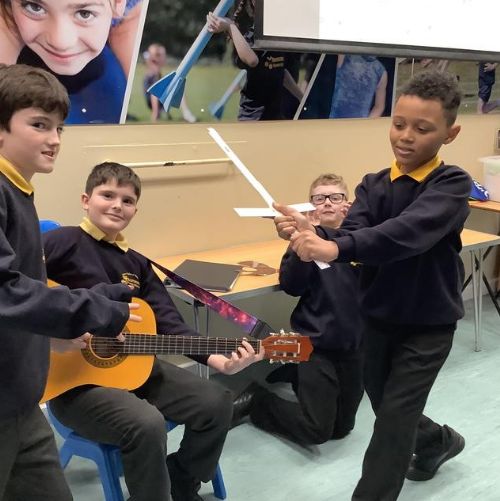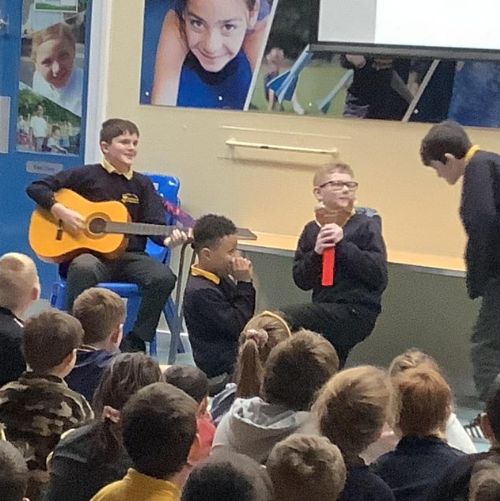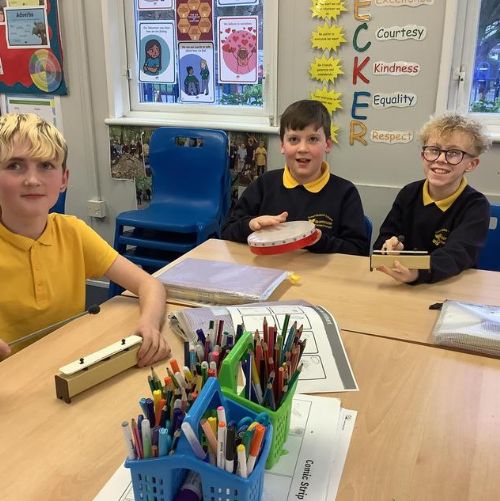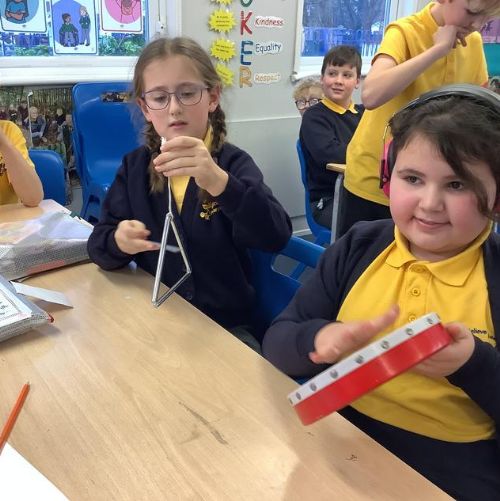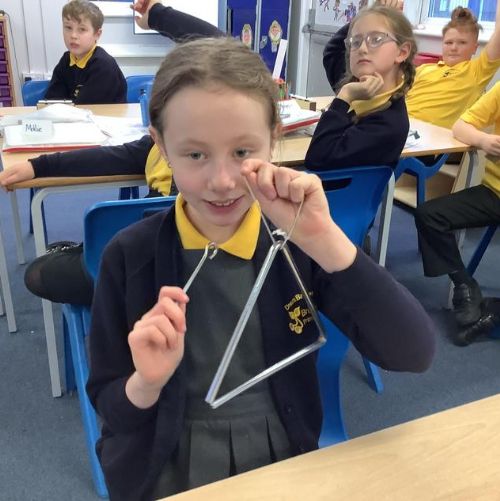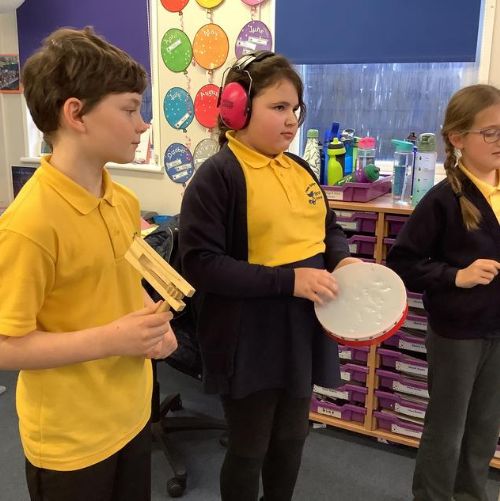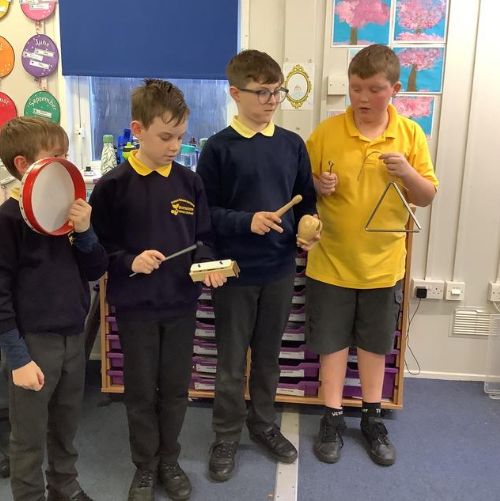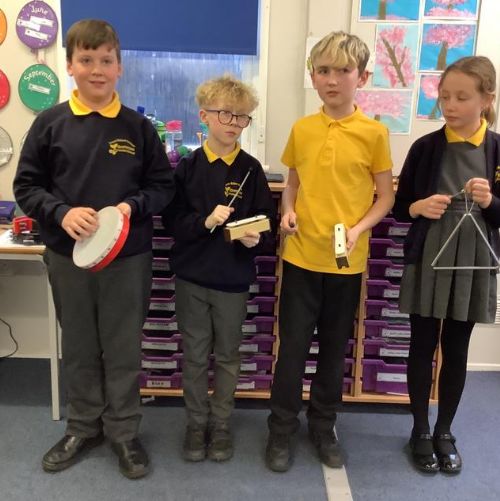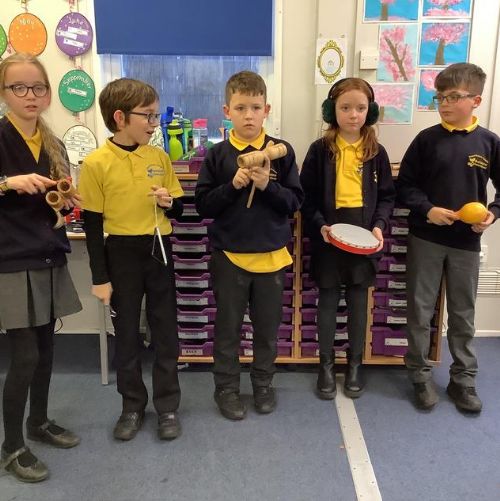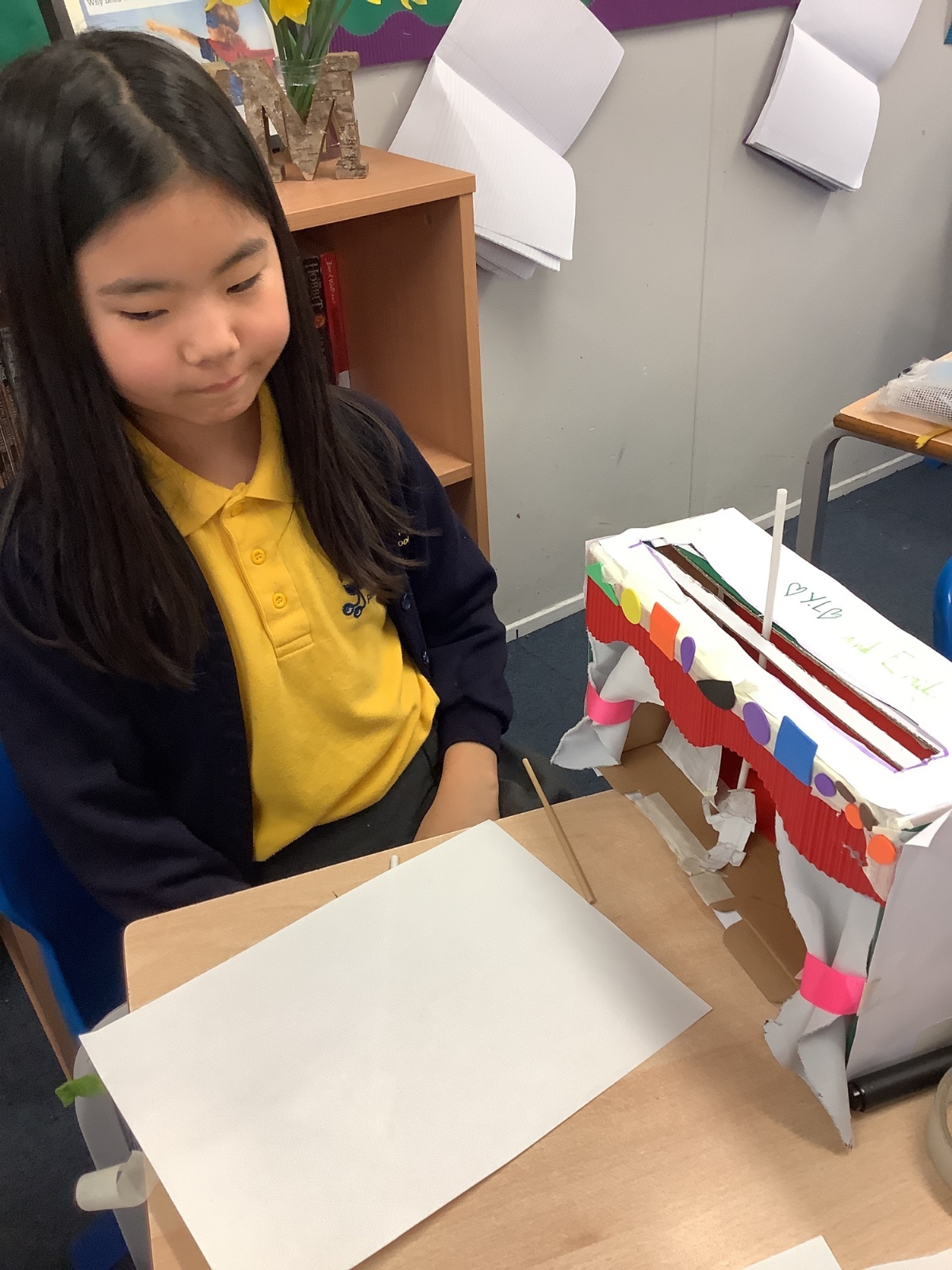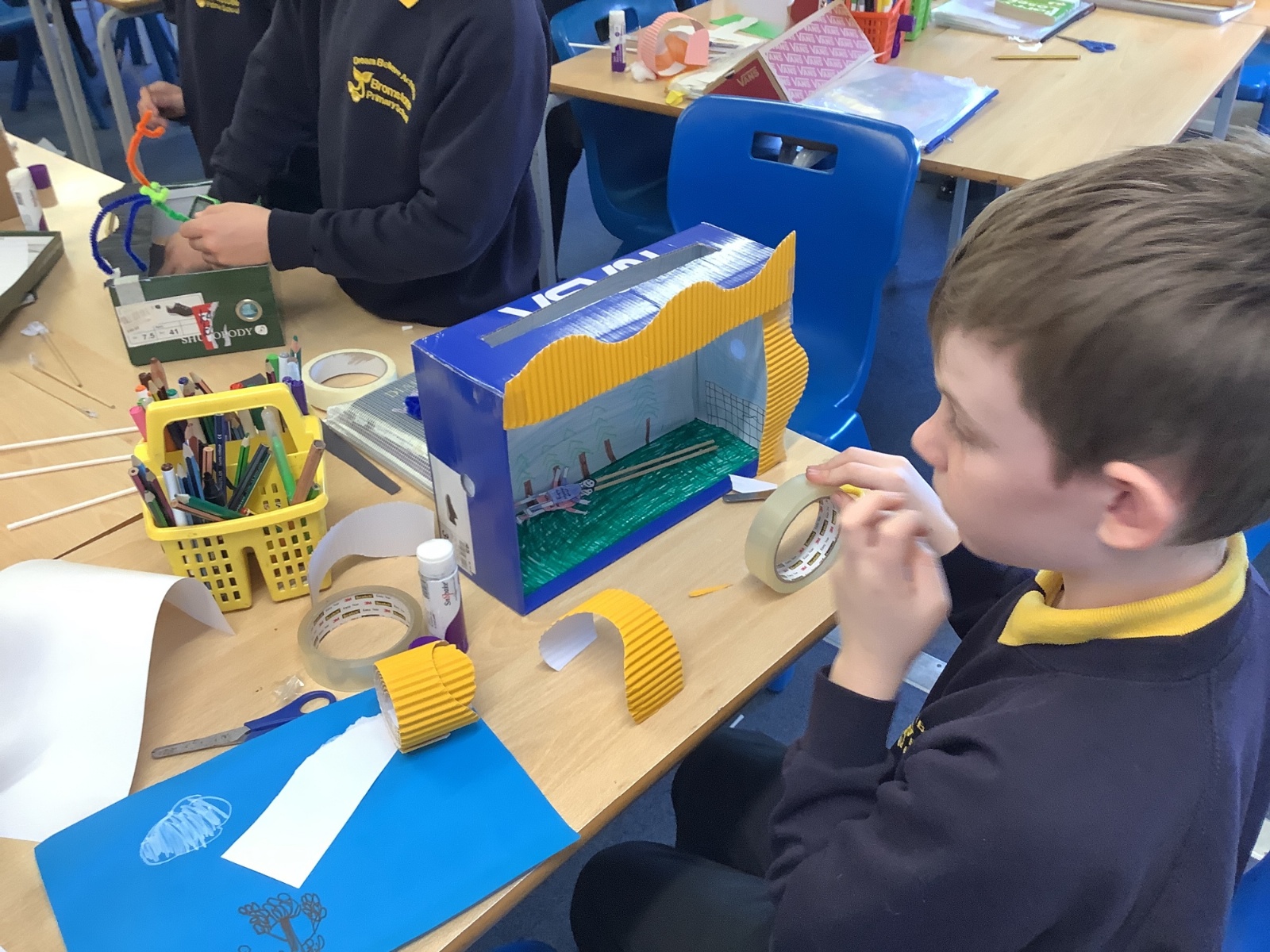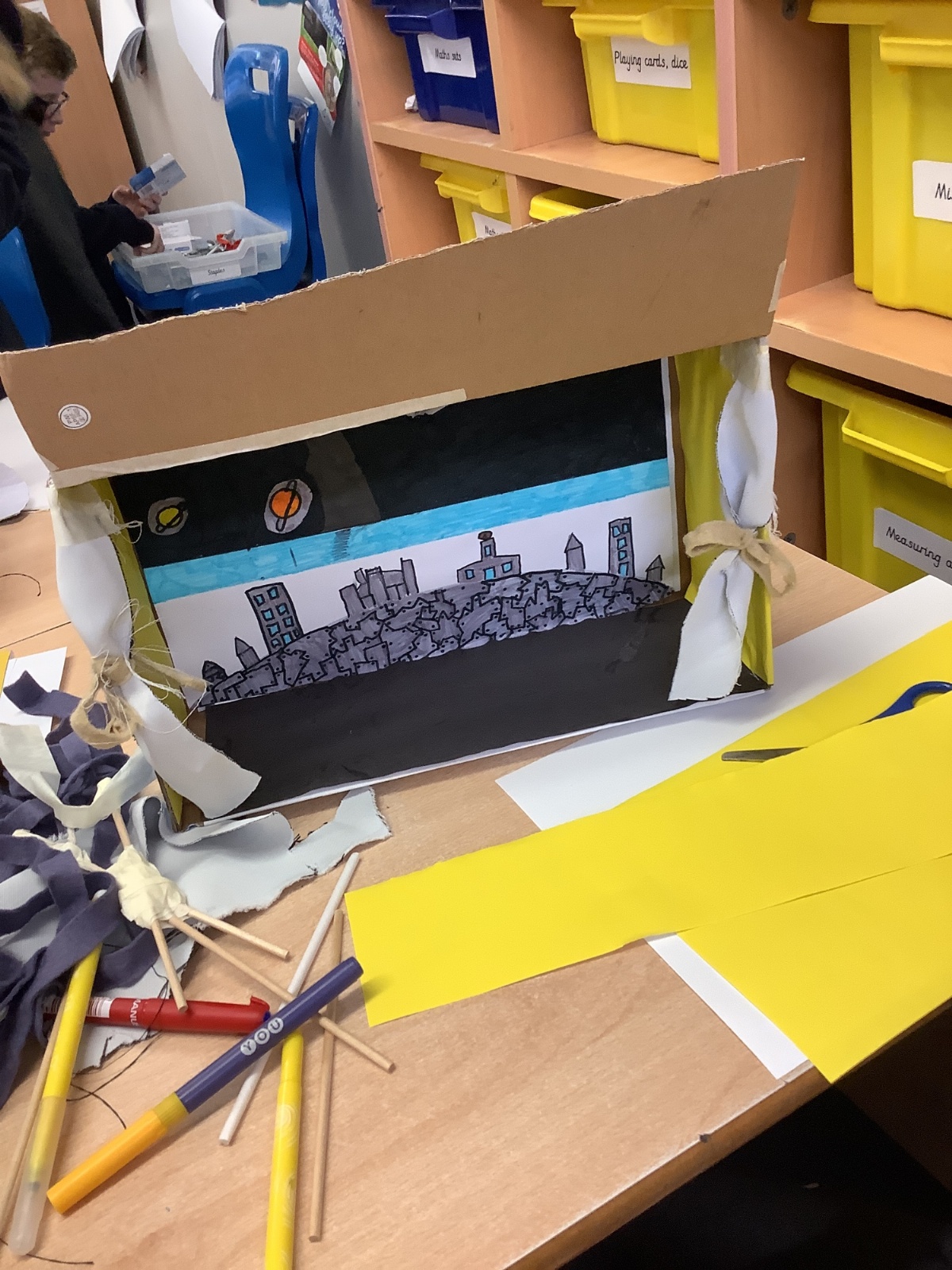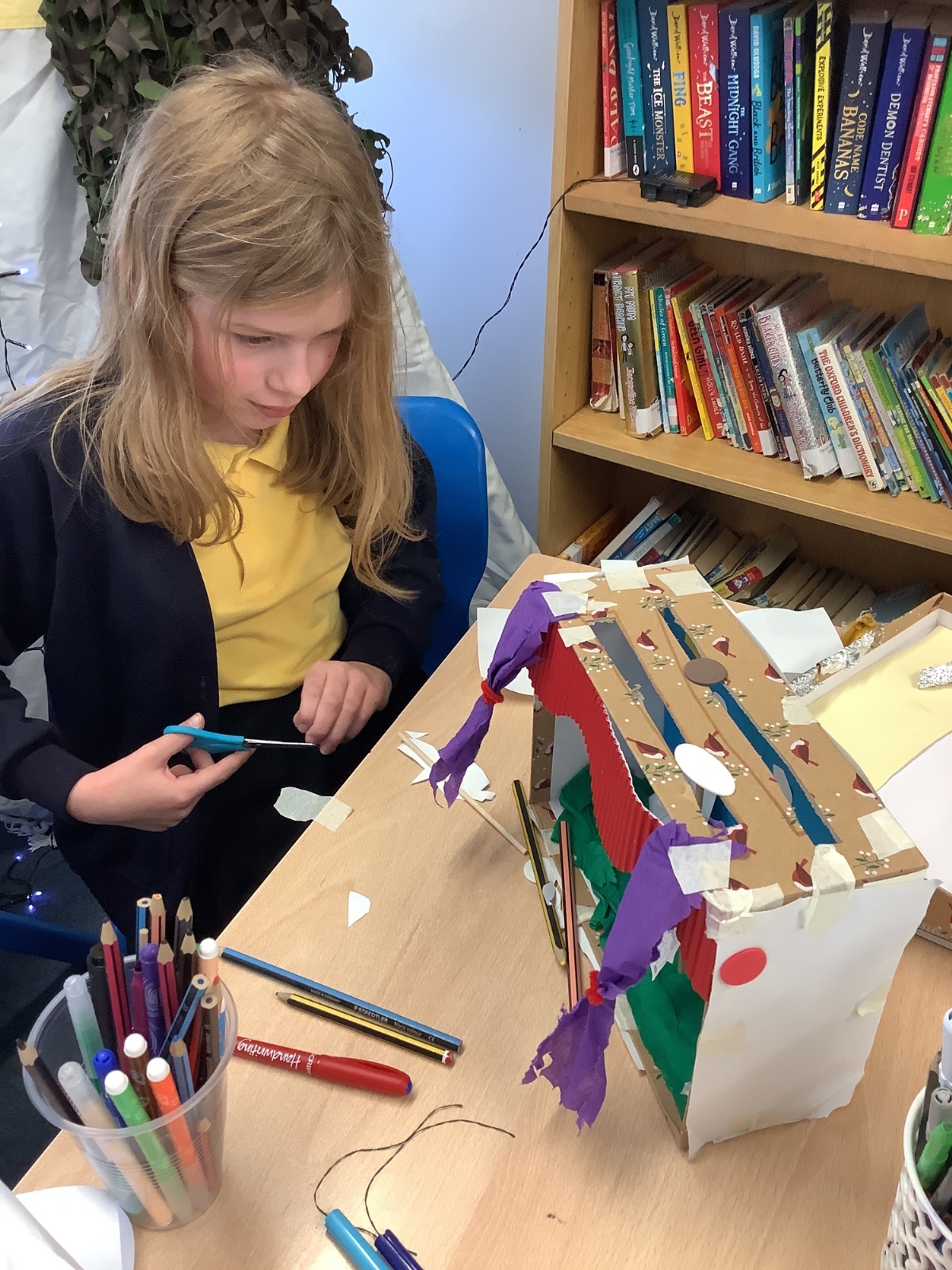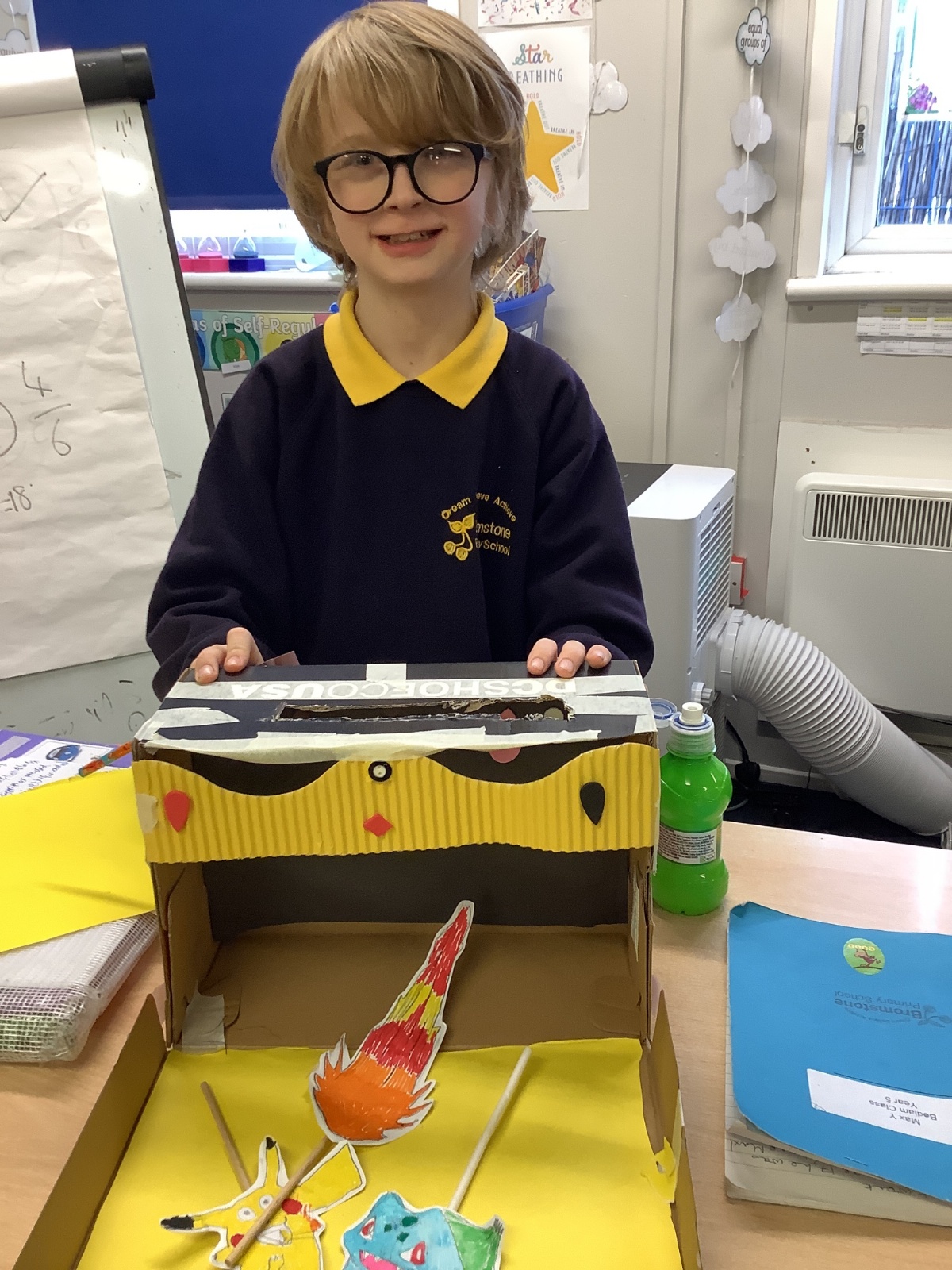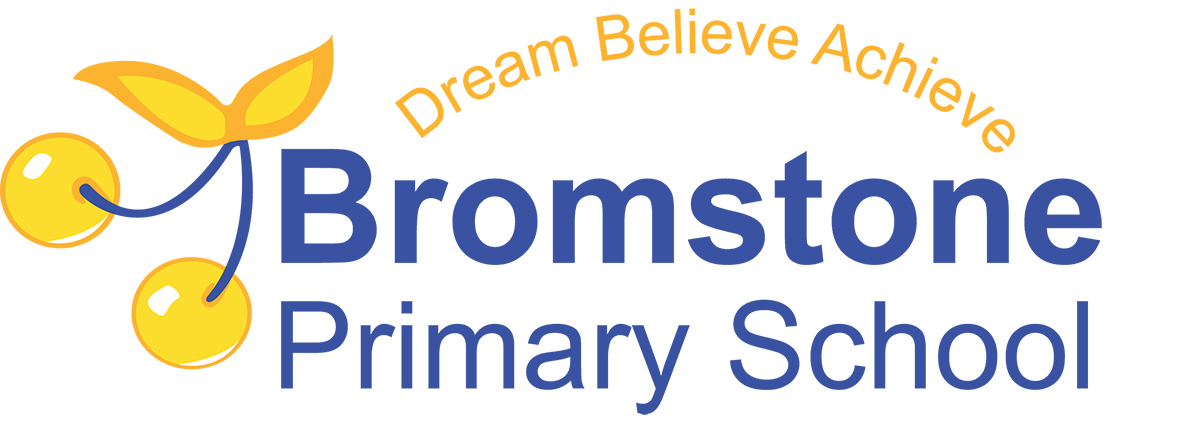
Bromstone Primary School
Term 3: Would you follow the Jabberwock?
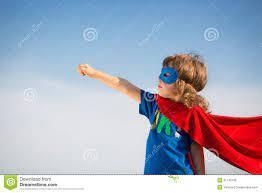
Why Lead When You Can Follow?
Would You Follow the Jabberwock?
This term we will be exploring the whole school question “Why Lead when you can follow?”
As a year group we are going to be exploring the question, “ Would you follow the Jabberwock?” This will be an important question as we explore the qualities and importance of leadership. We will explore how we can all lead in someway and how we can be a positive influence others.
RE
During our first week back we will be exploring the big question " Why do some people believe in God?" We will define the terms theist, atheist and agnostic, and give examples of statements that reflect these beliefs. We will explore how a Christian understanding of what God is like, using examples and evidence. We will look at ways in which believing in God is valuable in the lives of Christians, and ways in which it can be challenging. We will share thoughtful ideas about the impact of believing or not believing in God can have on your life. Finally, we will reflect on all the different viewpoints and have an opportunity to share our own.
English
In English we will be writing to entertain and exploring the poem "The Jabberwocky" by Lewis Caroll. We will be looking at the art of performance poetry. The children will have the opportunity to explore the language and themes of the poem and perform it to others. We will then move onto writing our own character descriptions, using our imaginations to conjure up our own Jabberwocky creature.
We will be continuing to build on our presentation and handwriting skills.
In guided reading we will continue to develop our inference skills by exploring a variety of texts and poems.
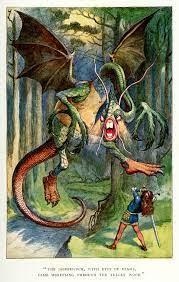
Maths
This term we will be looking at multiplication and division. We will then be moving onto applying this knowledge with fractions as we continue to build our confidence with fractions and the knowledge we have from last term.
Science
In science we will be investigating properties of materials and why certain materials are used for a particular purpose. We will continue to develop our scientific skills and look at the world as a scientist. We will make detailed observations and appreciate the importance of a fair test whilst investigating using practical equipment.
Geography
Looking at the world as a geographer, we will be developing our map skills. We will confidently use the directional points on a compass and use co-ordinates to locate geographical features. This will lead onto the children designing and sketching their own maps that will show a key.
Design Technology
Children will make their own movable puppets and puppet theatre. They will use a variety of mechanical puppets to bring their own version of the Jabberwocky to life.
RE Week
During RE week, we thought about the reasons that some people believe in God. This involved thinking about the natural world and the beliefs some people have about its creation. We all agreed that nature is a wonderful thing and sketched some of the natural things in our school environment.
Super Sketching!
-
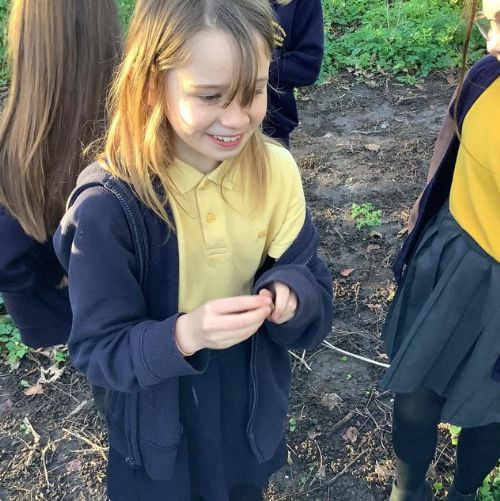
70a4bb31-9240-49bb-952b-e91a066d600d1x1
-
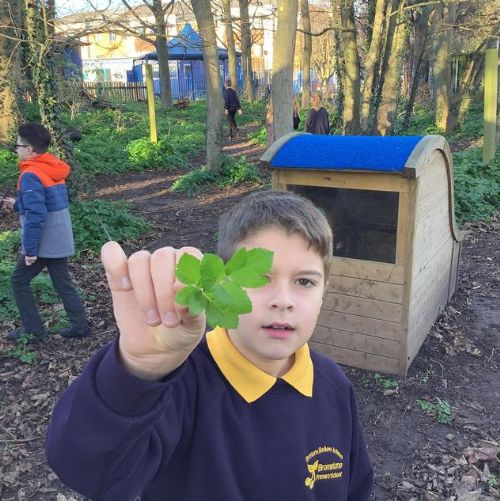
ec5edb56-53af-429c-b592-af277f4e32651x1
-
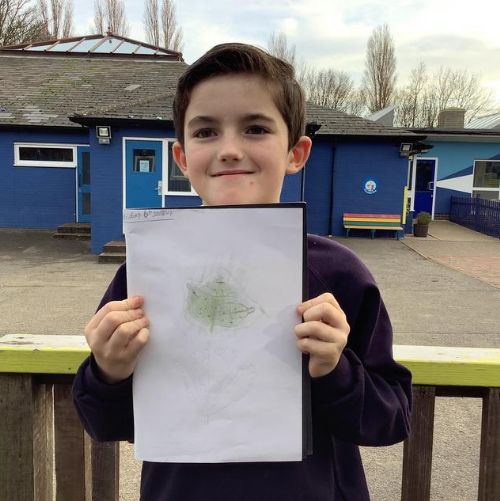
5287601a-b60a-4e47-b851-011eae8a80b01x1
-
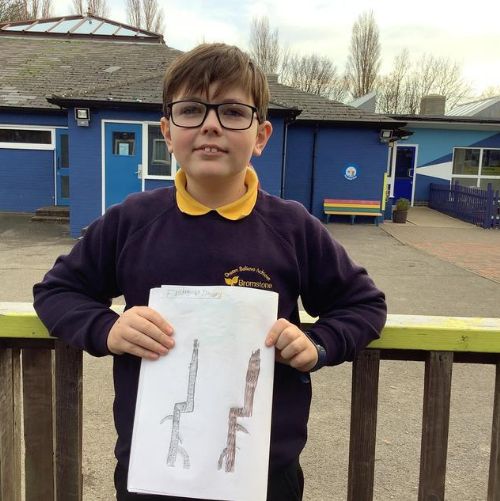
208e3793-2ad1-464c-9ac8-f4b3e55d27461x1
-
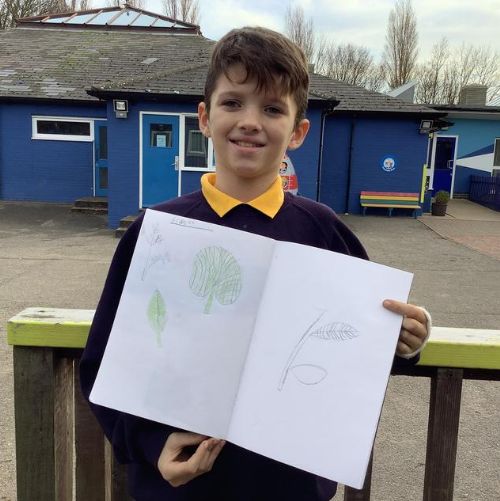
14ed7cad-05f1-41ba-a658-d8dac90e525f1x1
-
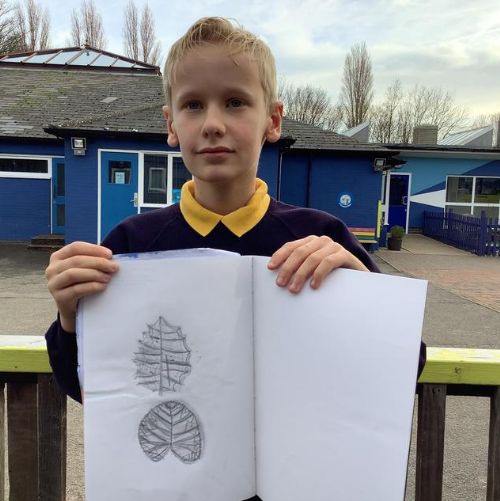
af498c60-32af-4ff1-97d7-f6354f3a714e1x1
-
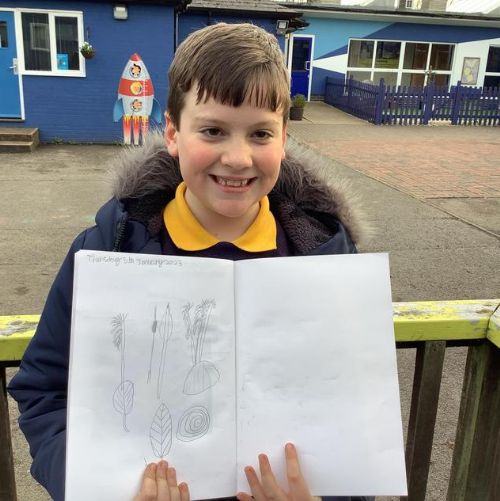
288629a4-f9fd-4834-bba5-cb3cca1cfa741x1
-
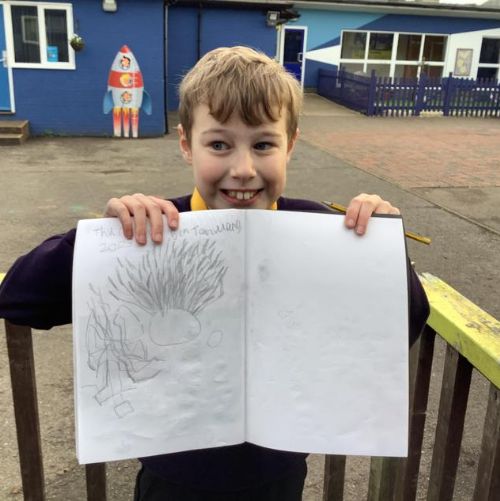
754ed63d-cf84-41be-a7ce-3572d86b85841x1
-
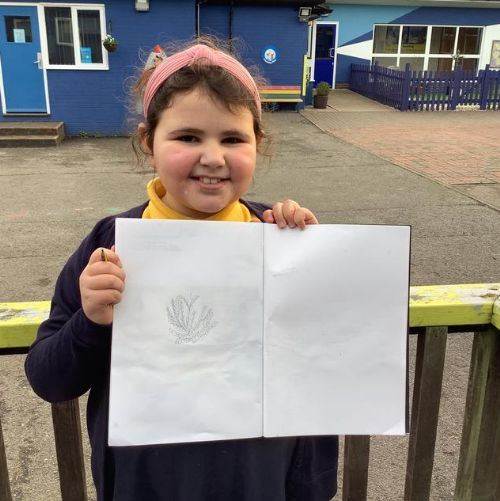
491b4645-851b-46ae-82cb-0b63cad023f71x1
-
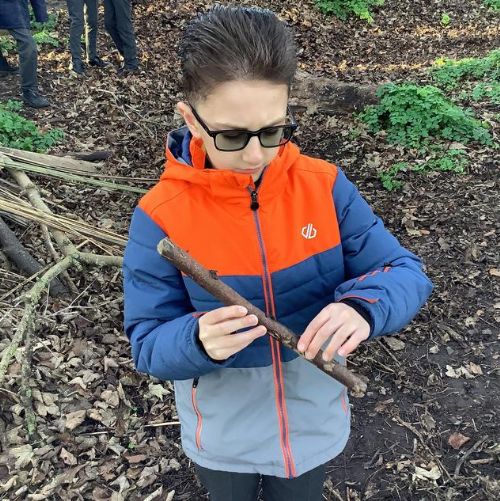
383e1de9-13c5-4f60-be94-c805ed0198b91x1
-
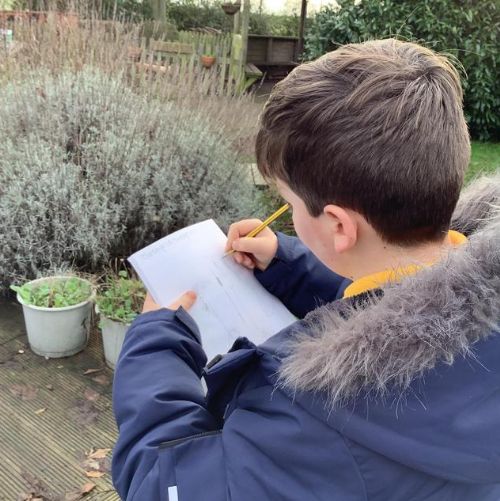
9e5943fc-805b-406f-bb8b-0212a01f3c411x1
-
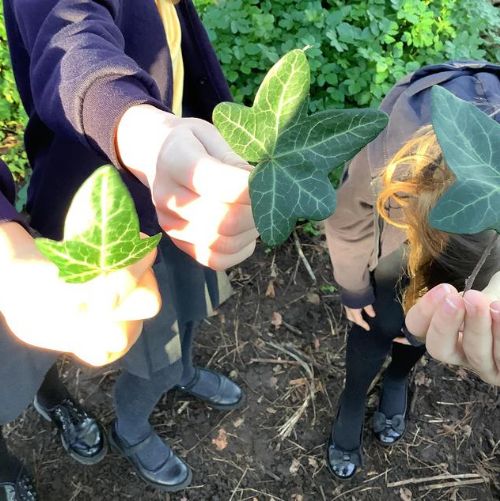
11cf4ca7-6fc6-4b62-b67c-4a406d6398fd1x1
-
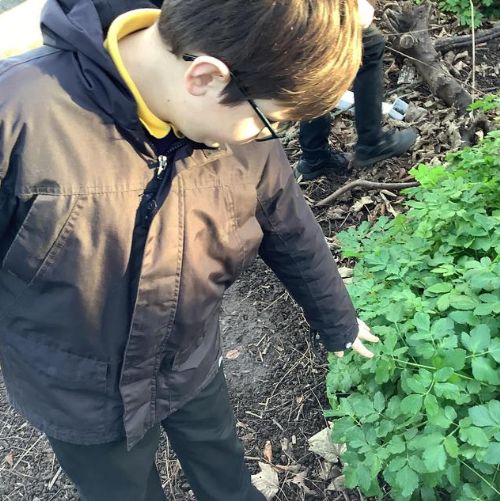
417ae165-758b-40f4-befe-7f55cc0041261x1
-
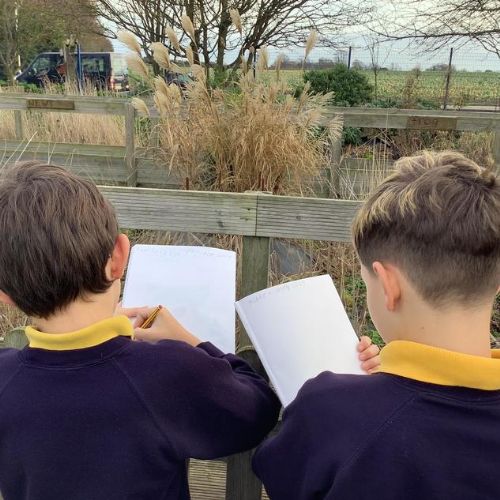
1f71172b-d7b3-4841-b8fd-ee6db632aef51x1
-
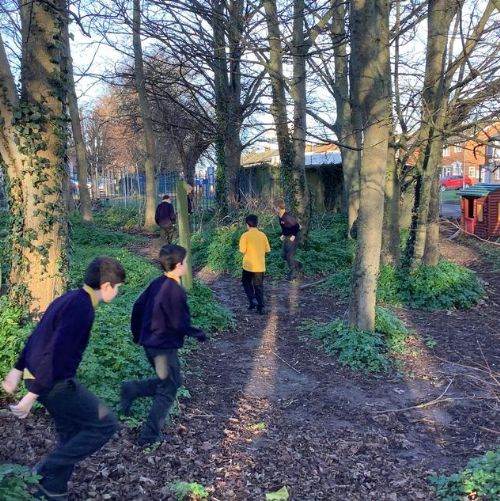
32dbfefd-77df-4b2f-993e-d6e71bef39771x1
-
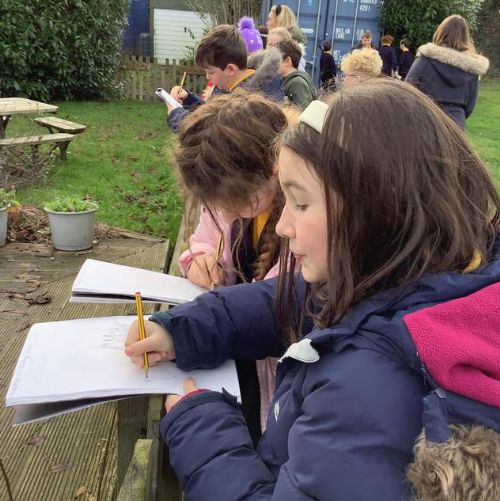
924b8b27-5bcf-40d9-8f02-d7437a011b421x1
-
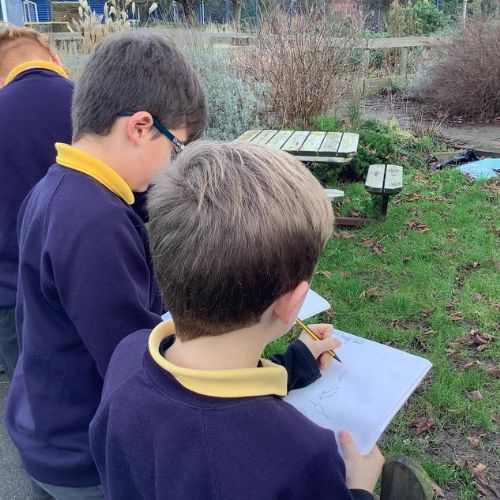
53a508b5-1d0a-407a-ad0c-d00c7e2721df1x1
-
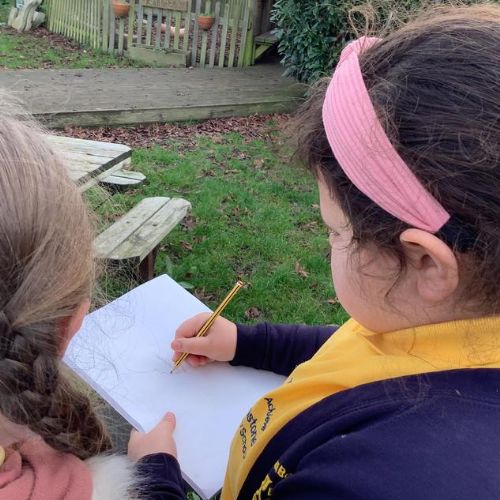
bbd3fe28-f5b9-4363-9ac6-42baf37ca65c1x1
-
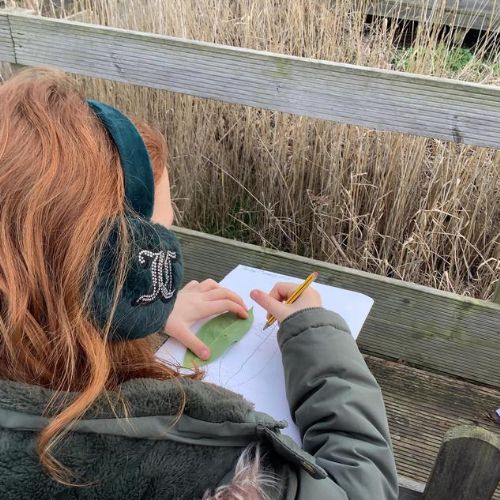
f6a69cc8-7d1b-4099-b19d-fcb3cc03ddd91x1
-
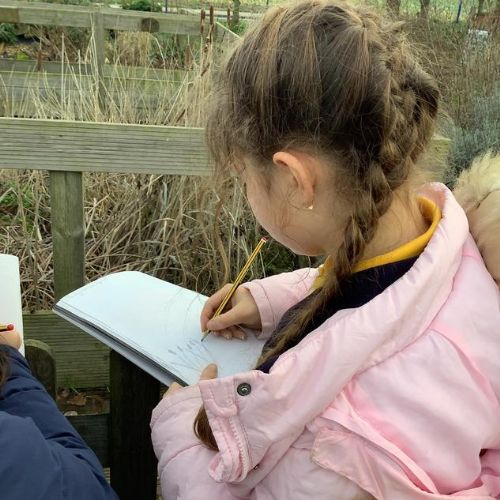
0ce51187-838e-4a7c-86b6-3174caec7f711x1
-
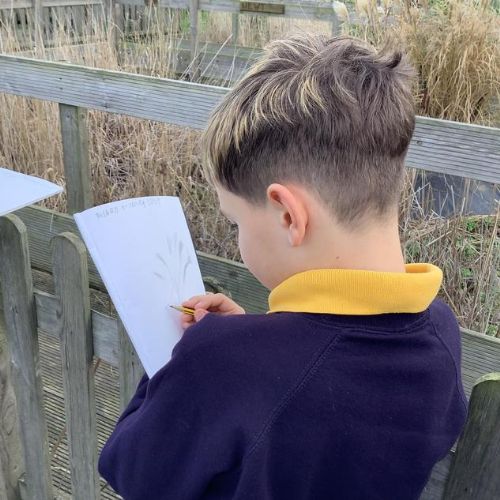
6d76a0d3-29ef-4cb3-8e25-5d740e539a591x1
-
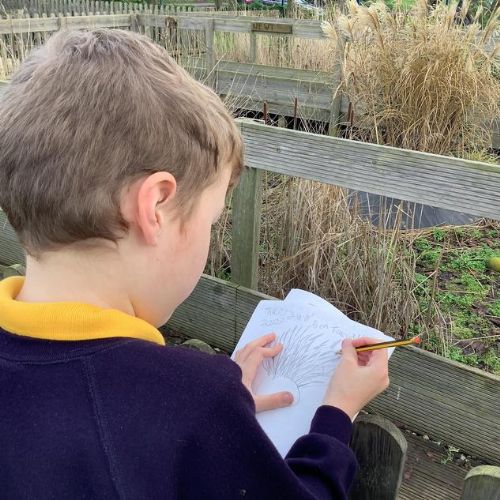
ff6395f6-fcc4-46ad-9fa8-350535c3d2ee1x1
-
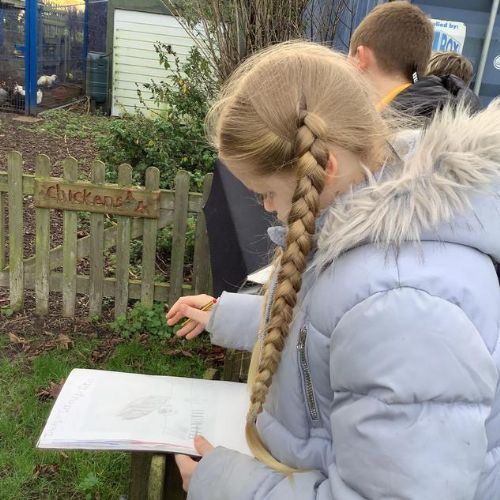
2fb9f33c-519e-4b9a-abcc-9a9d7b40c2ee1x1
-
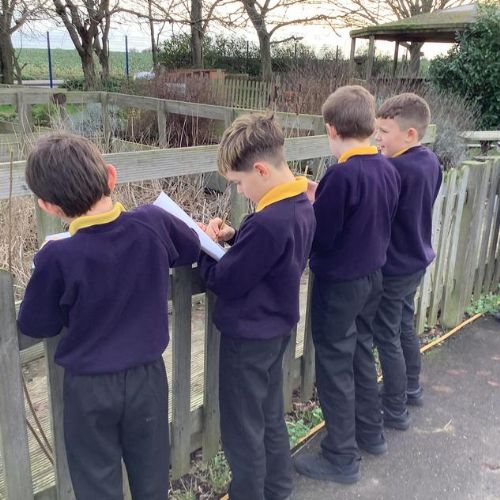
11592d84-5e62-4a45-8e56-27516b5272491x1
-
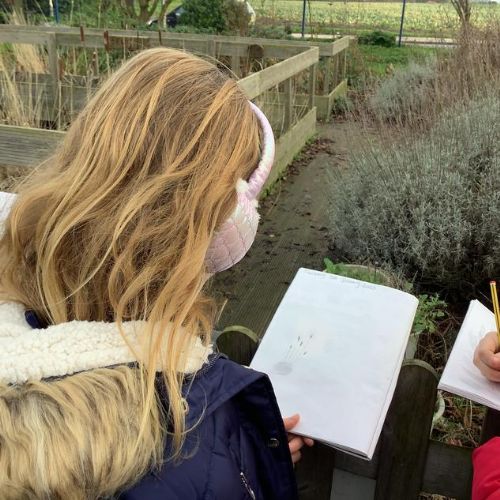
b28c4ac1-5fa5-4eeb-8693-4e336cad21d01x1
-
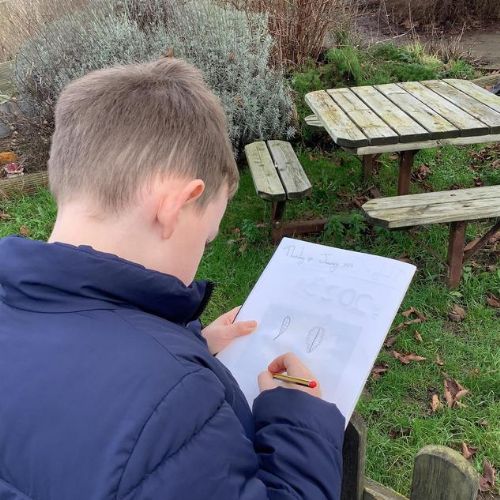
c5ec83e0-30a8-466d-886c-c2644eb783d61x1
-
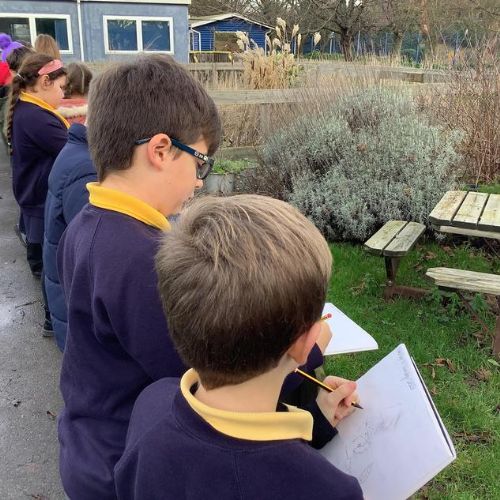
c7f24069-eb3e-453e-aa2f-d424fa0d86051x1
-
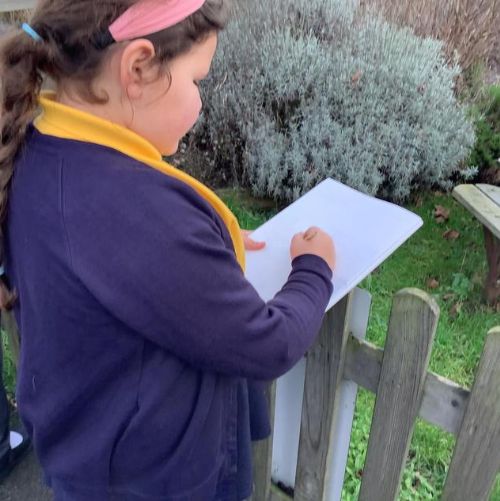
c36ec68c-8759-46f8-a701-c1184d7a3ee41x1
-
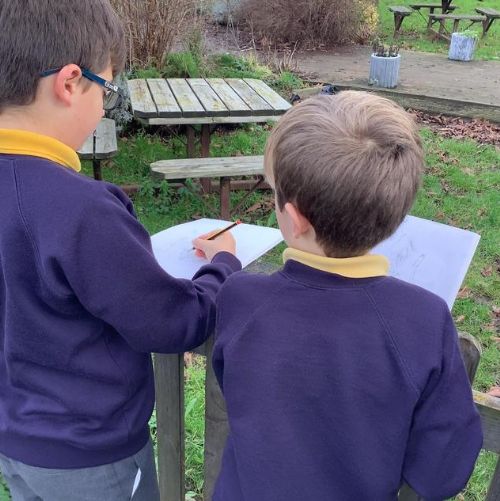
8f6eb3e1-255d-45ae-9fc2-fd2de340da711x1
-
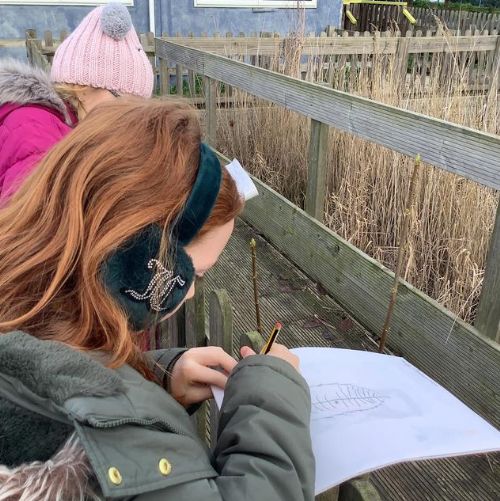
e0e500f1-232d-44e8-96a5-f5a4429c54d61x1
-
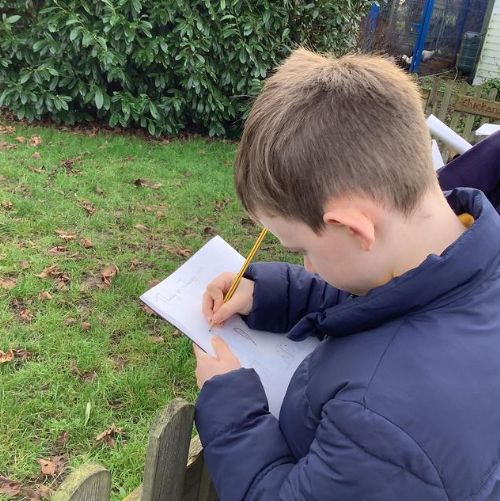
064e95ef-c743-46ca-84cb-f4bbe36080b41x1
-
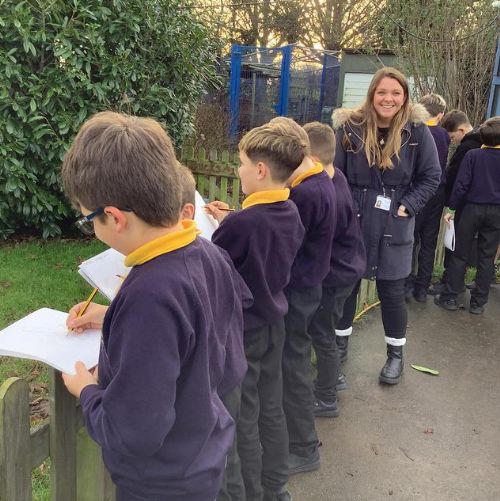
2a9e3df1-518f-4da0-b303-956fa2984cf61x1
-
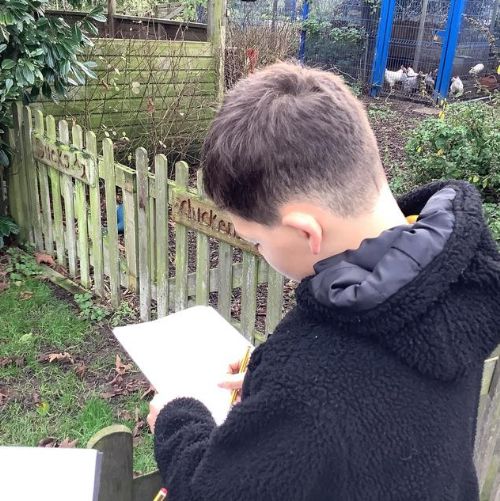
d9b70987-ef24-4103-838e-cb61ff7933051x1
-
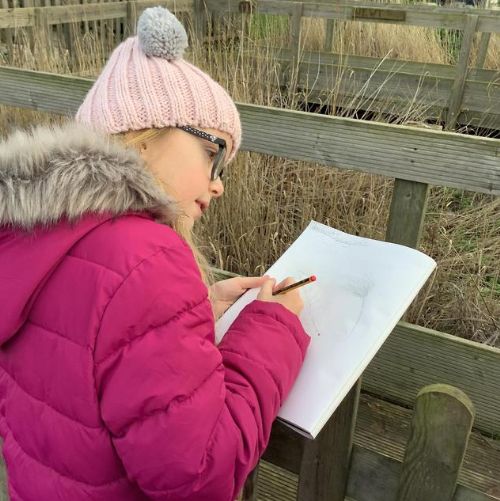
f917856d-c096-4716-8b8d-a46971150dbd1x1
Poetry Performances
The children have been developing their performance skills by reciting poems. They thought carefully about how they could use their voices, actions and gestures to bring the poem, ‘Jabberwocky’ to life. Some groups even included music in their performance.
-
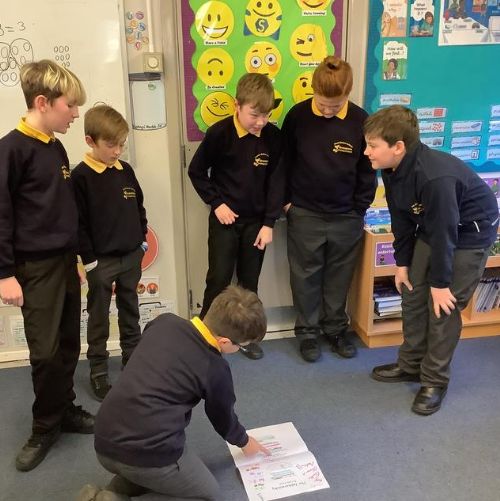
5e4cb017-df52-47f5-bfd9-29fc2fb442471x1
-
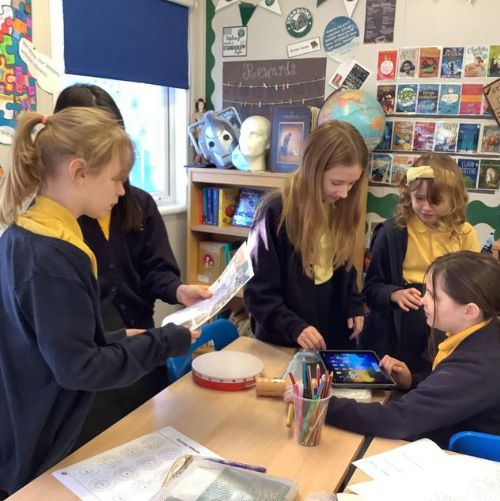
0c88653d-19c0-404a-bdd4-db18caa4a9181x1
-
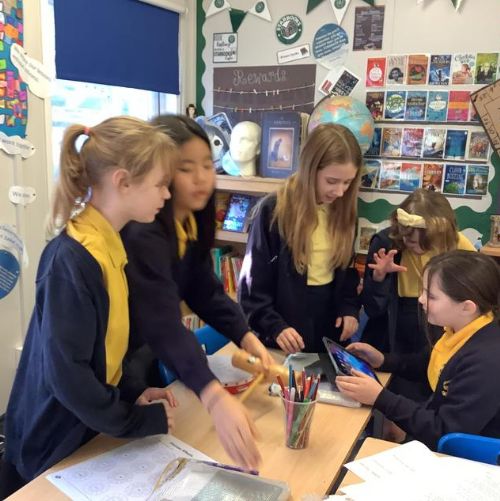
61401f7d-cb9d-4ad4-9499-2c24785d87121x1
-
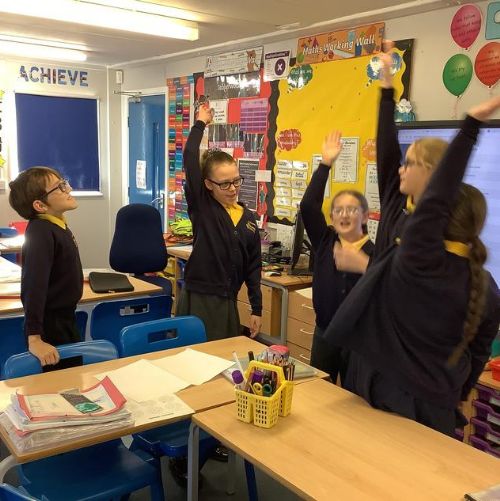
126fd8b7-17a9-4e2a-9f9c-8ab7ca937f861x1
-
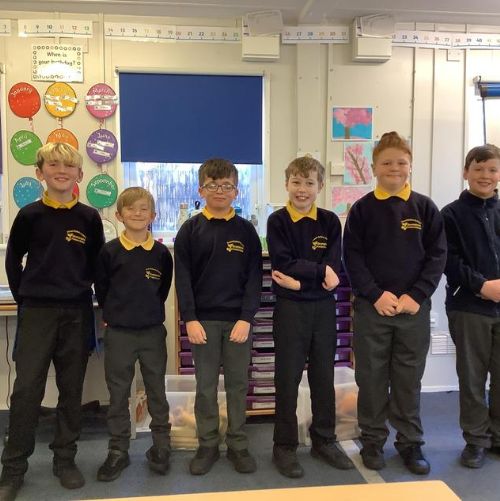
529b1a21-eb44-4903-88d2-b82453f8f0861x1
-
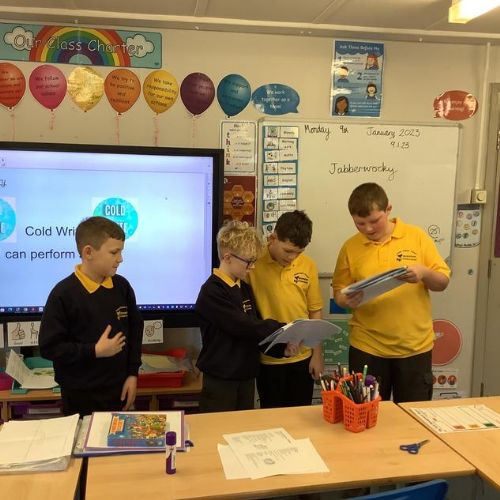
8ca4c0cb-83d0-4b0b-a9f2-af2ed13806311x1
-
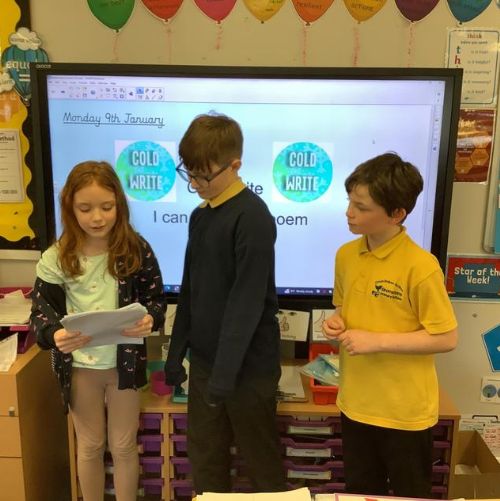
19c82715-a399-44d5-ac69-dabb0cc4edf81x1
-
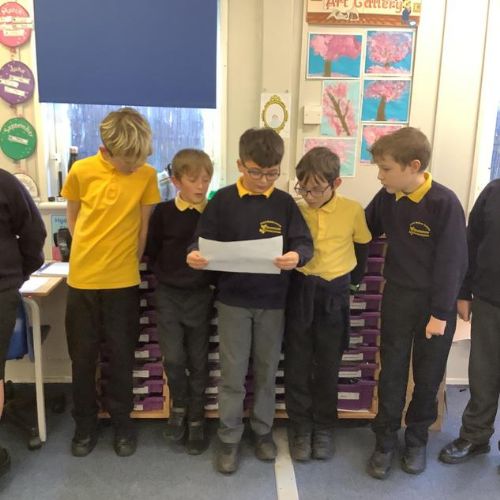
864f4c29-e8c8-4b2b-8a80-8b7b01adcb841x1
-
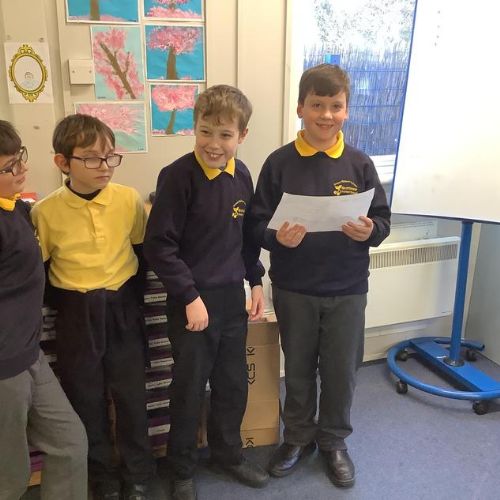
3640d76b-af69-4eef-9af2-a08380ea2f421x1
-
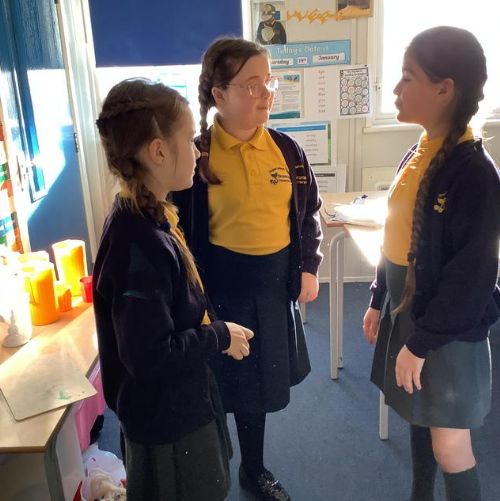
6a632a2d-c46e-41f4-8192-545e6395ed341x1
-
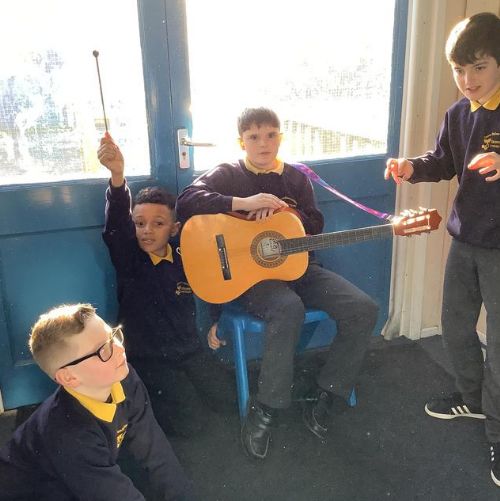
f47f1872-860d-4b7c-9a47-bf8471fd6ea31x1
One group performed ‘Jabberwocky’, with musical accompaniment, during our celebration assembly.
Music
The children have been learning how sound effects and soundtracks are used to accompany action in a movie. They worked together to create their own sound effects.
Science
This term we have been learning about properties of materials and why certain materials are used for particular purposes. One of our investigations involved testing a range of materials to discover which made the best insulator.
-
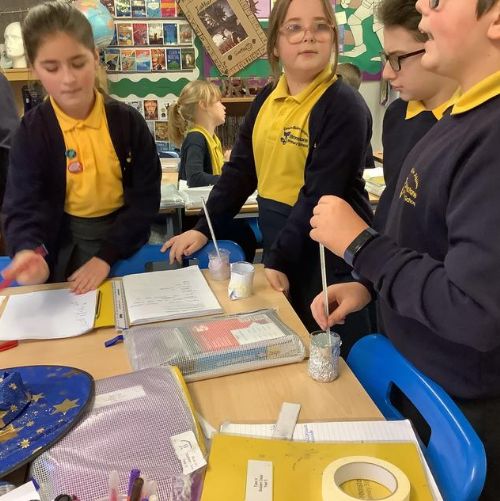
f3b663a4-caa6-4fa1-910d-3b8729b3fd791x1
-
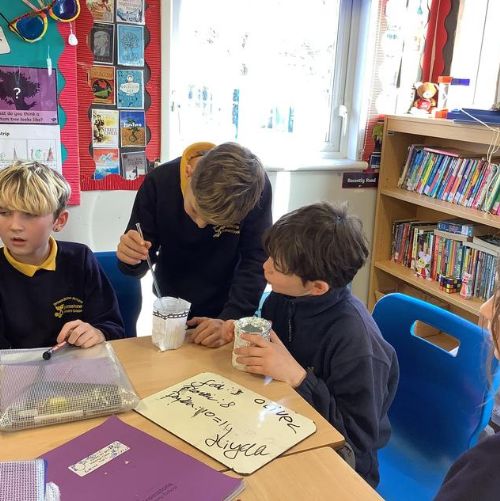
c82b8749-0afd-47a9-b713-7f085e33eab21x1
-
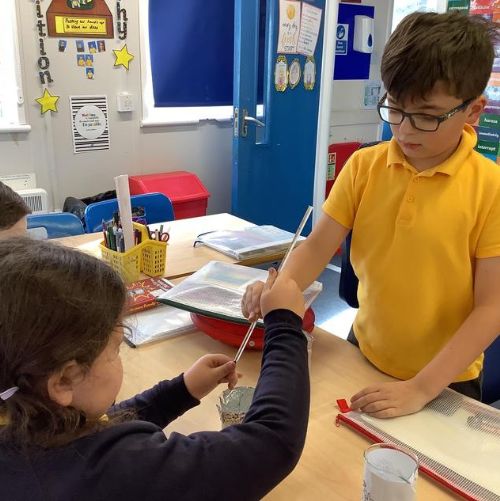
036d1065-d29e-4794-9279-f21b0278d5371x1
-
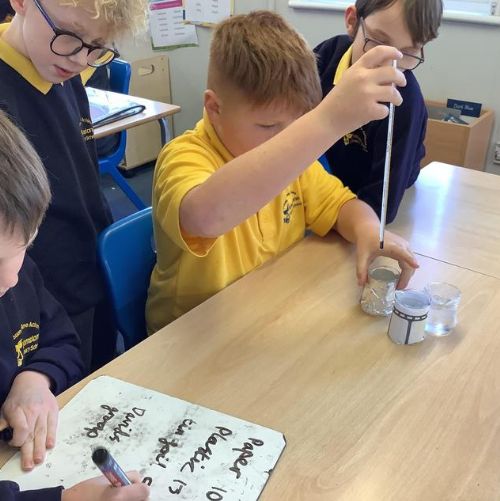
5263efcb-3af4-44e9-a57f-6d0e15bb916d1x1
-
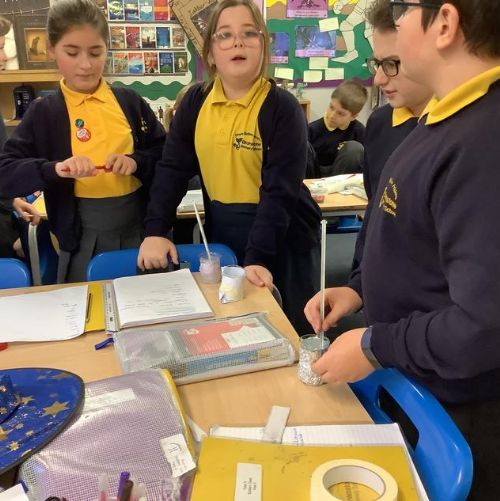
a8302d01-9efa-48a3-b965-58d42012f58c1x1
-
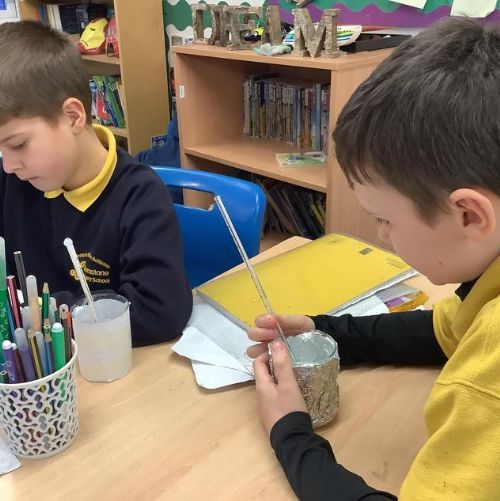
92e71ccc-abbb-41f8-82a1-45724167c8391x1
-
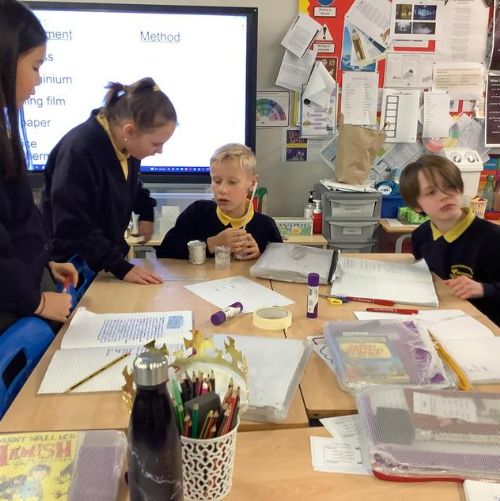
15f37256-d531-42bb-b628-9302166bcc351x1
-
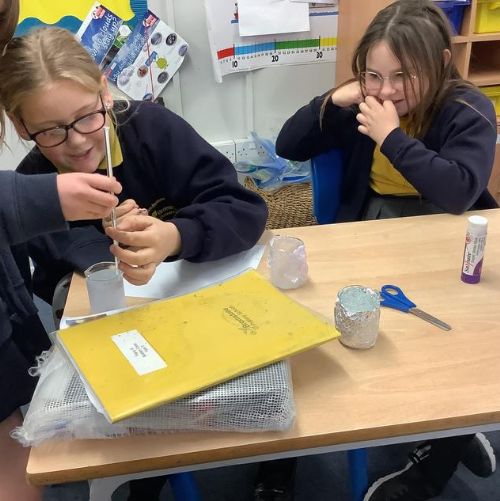
2ccb92ec-654c-49d2-b31b-38a22d05d4c21x1
-
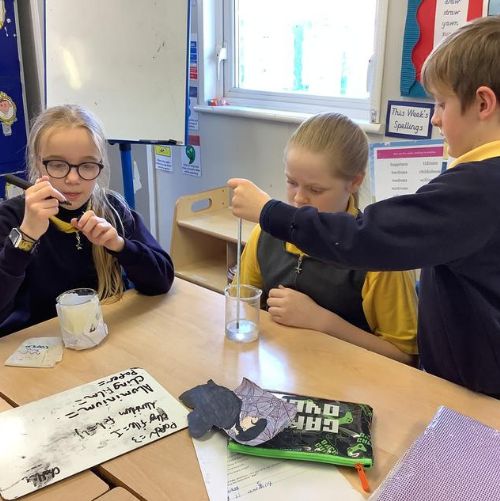
d7c91de4-7055-46bf-83b3-496f56f8b5301x1
-
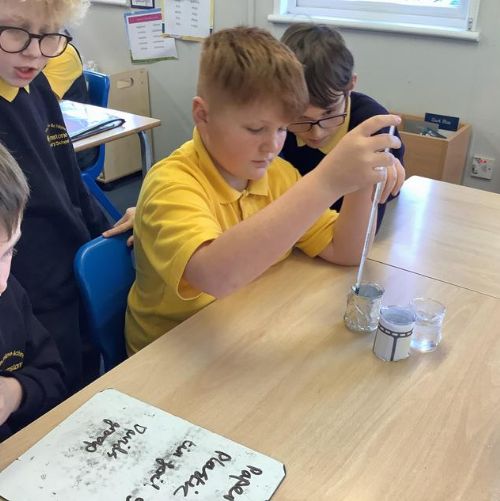
e7288f85-54fd-4d70-8a77-25907352babd1x1
-
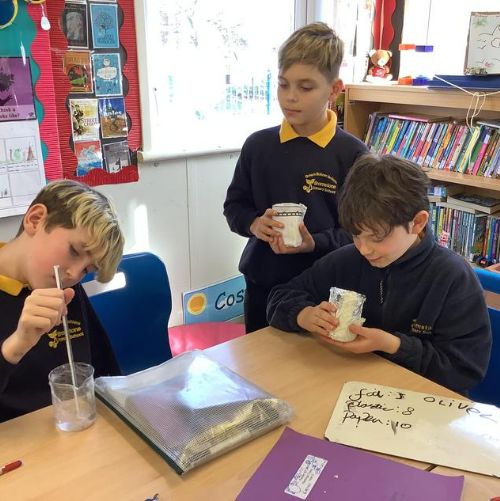
cc6153c9-574c-4583-9981-1f8ee777a9221x1
-
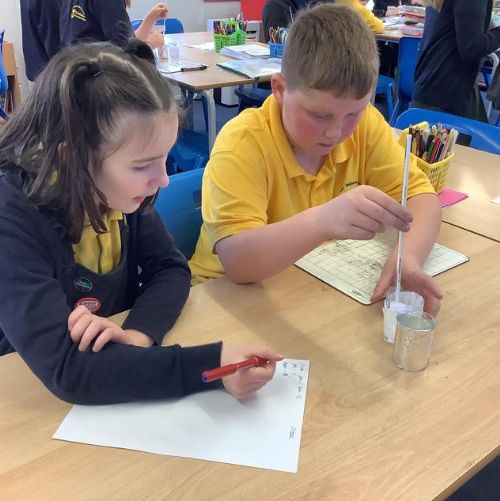
71526303-6122-405d-b05f-ec8c98f7e9191x1
Investigating what materials make the best electrical conductors.
-
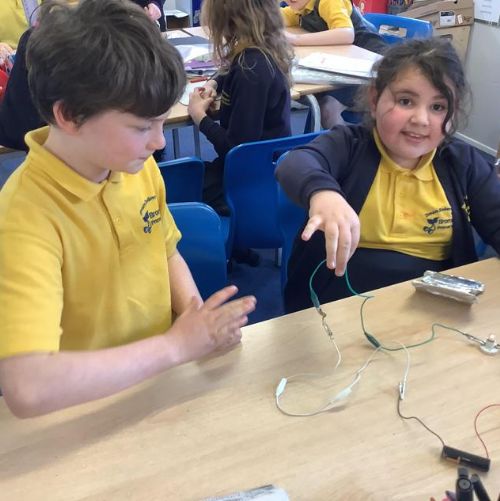
b79ed6df-ba8f-4136-8483-4b9d1ab40f891x1
-
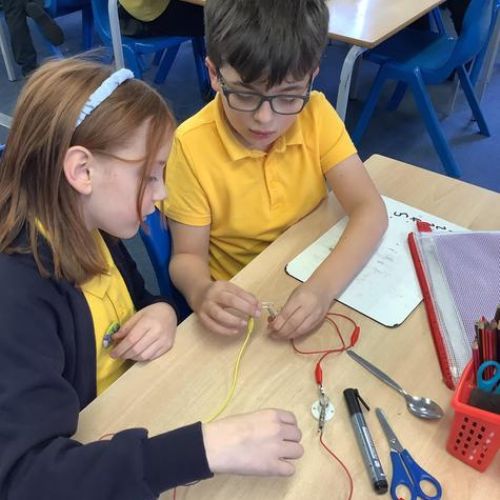
23cf7dca-7a09-4a33-9133-2c8453f03c8e1x1
-
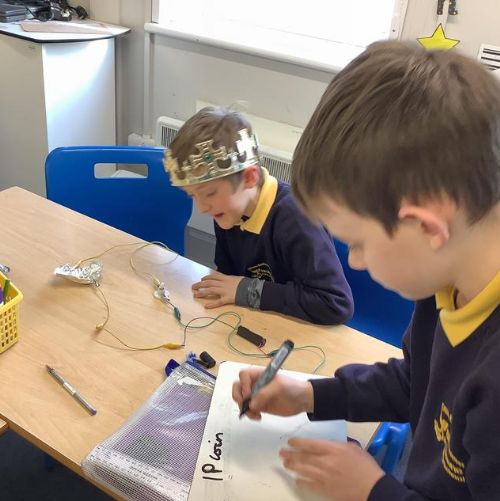
7544c1e4-5546-4594-bc24-3a6b969b93801x1
-
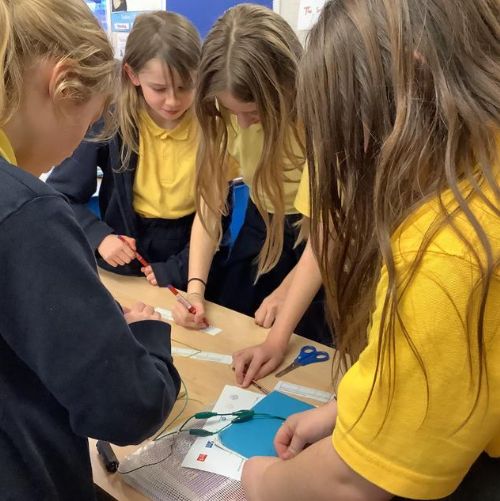
bffd4a22-ce14-4025-82b0-355fde49a12c1x1
-
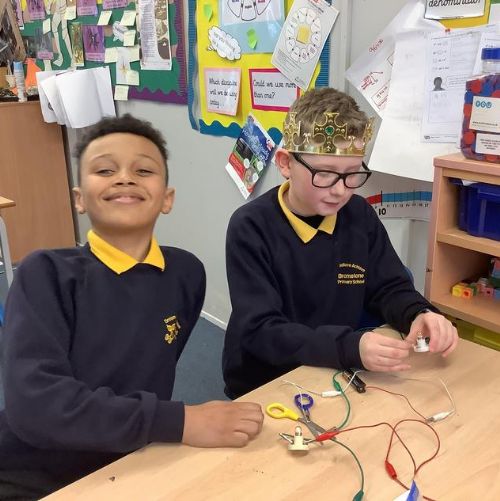
f682bb64-6462-4419-abaa-4030267f4d131x1
-
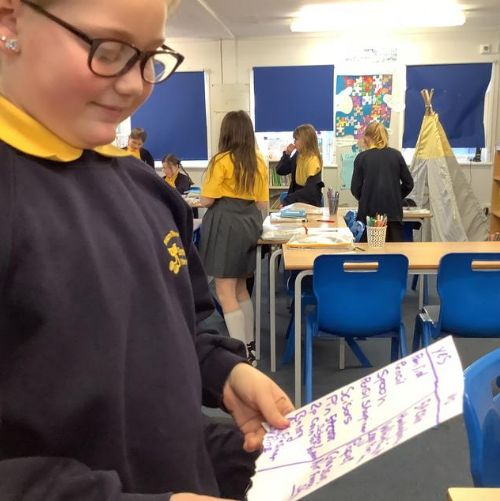
46099cb5-1da7-49b2-8442-1daf578ede241x1
-
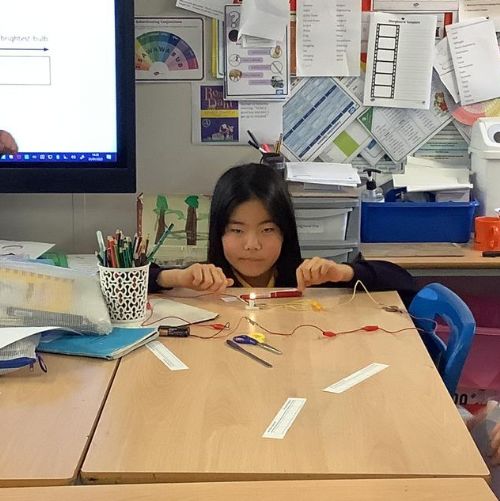
f7195d26-f477-4845-9709-ba69159117761x1
-
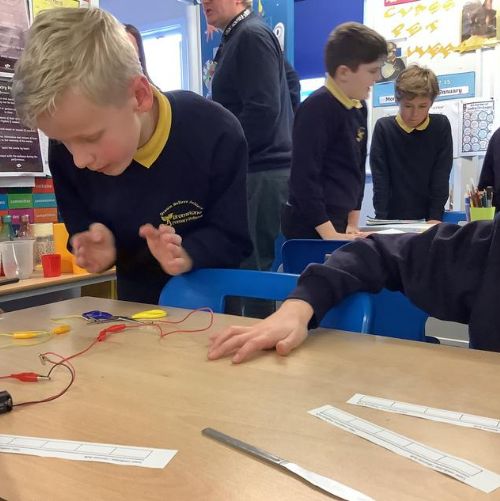
502540d2-b383-4c70-a26c-6b944a8e1e321x1
-
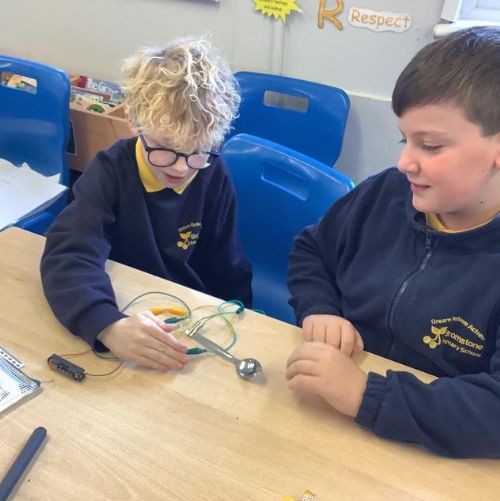
432c1703-e76f-478e-85fe-fd2ab3afa61b1x1
-
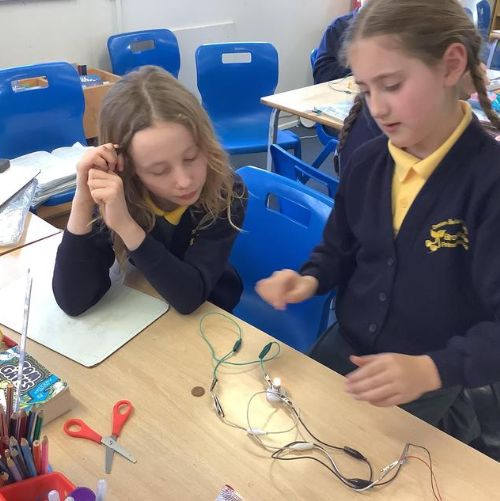
1e9835c9-cc2a-4974-864e-03bbd6a39aec1x1
Design and Technology
The children researched puppet theatres and then designed and made their own. A range of joining techniques were used and children were encouraged to ensure they made a product that was both functional and aesthetically pleasing.
